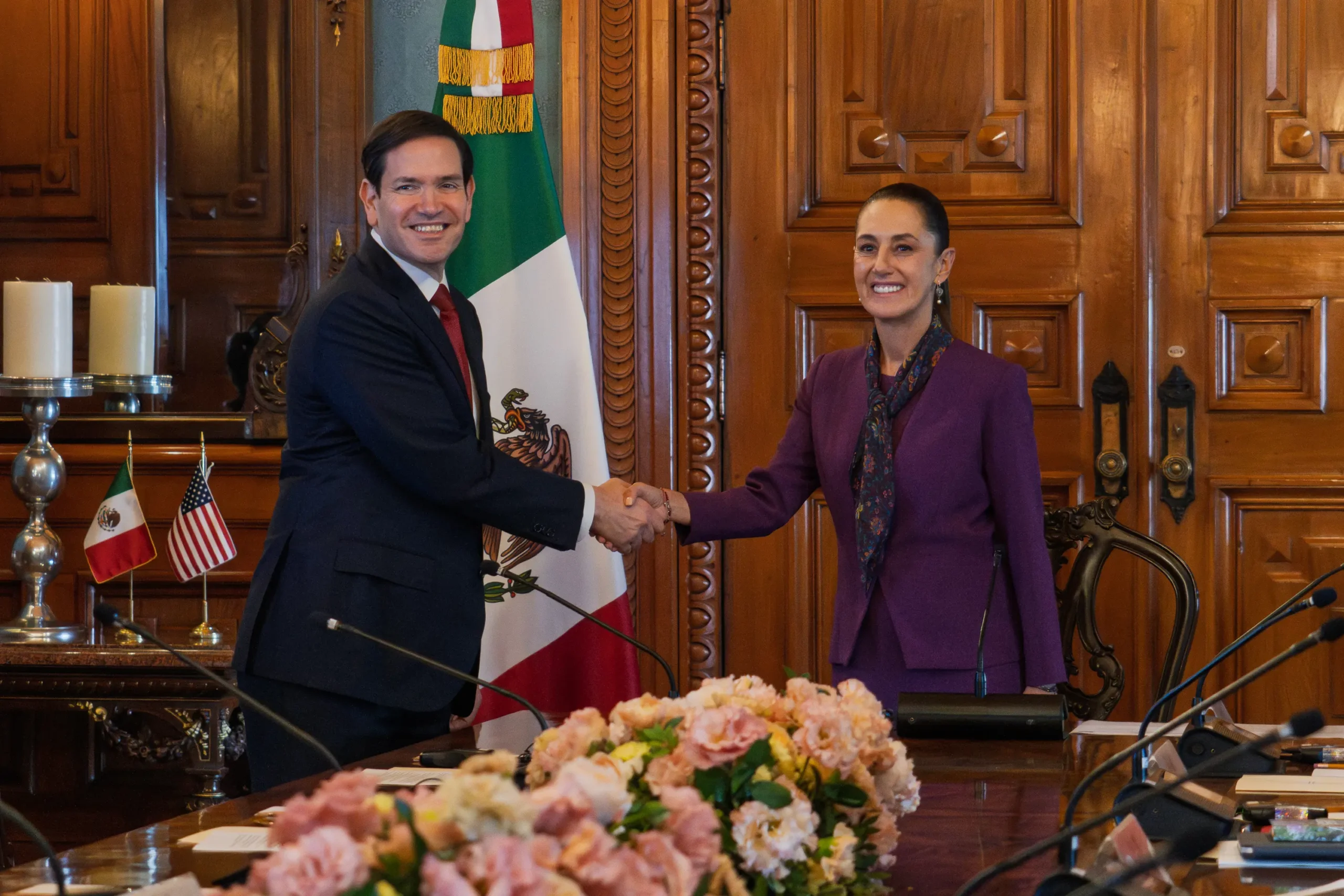
The governments of Mexico and the United States reaffirmed their commitment to a new era of security cooperation during the official visit of U.S. Secretary of State Marco Rubio to Mexico. In a joint press conference with Mexican Foreign Minister Juan Ramón de la Fuente, both governments emphasized that the bilateral relationship has reached “a historic level of cooperation” based on reciprocity, mutual trust, sovereignty, and shared responsibility.
The renewed partnership seeks to dismantle transnational criminal networks, stop the flow of fentanyl and other illicit drugs, combat arms trafficking, and address irregular migration across the border.
To accomplish this, the two nations announced the establishment of a high-level implementation group, designed to monitor commitments, ensure accountability, and advance cooperation through specific operational actions such as eliminating clandestine tunnels, strengthening joint investigations, and disrupting financial flows linked to organized crime.
Marco Rubio: “The highest level of cooperation in history”
Secretary Rubio praised Mexico’s efforts under President Claudia Sheinbaum Pardo, noting that the past eight months have yielded unprecedented progress.
“Never before in the history of both countries has there been this level of cooperation — cooperation that respects the sovereignty and integrity of both nations, but at the same time delivers concrete results. We’ve seen it, for example, in the extradition of 55 suspects whose extradition was requested by the U.S. government, facing serious criminal charges. It was an extremely difficult operation, carried out with the full support of Mexican authorities, even using Mexican aircraft to deliver them to American prisons.”
Rubio highlighted that intelligence-sharing, providing training and equipment, and cross-border operational coordination have been decisive in striking blows against the cartels. He also underscored that organized crime represents a national security threat to both nations, making joint action a necessity rather than an option.
“There is no government right now cooperating with us more in the fight against criminality than the government of Mexico under President Sheinbaum. We are deeply grateful for this partnership, and while there is still much to do, we are advancing together toward the same goal.”
Rubio also acknowledged the need for the U.S. to confront its own challenges, including rising violent crime in several cities and the flow of firearms to Mexico and the Caribbean. He said these issues are now part of the implementation group’s agenda, ensuring shared responsibility.
“Our peoples share destiny, threats, and solutions”: Juan Ramón de la Fuente
Minister of Foreign Relations Juan Ramón de la Fuente reinforced Rubio’s remarks, noting that geography binds both countries together in a relationship of shared opportunities and shared challenges.
“The history of our peoples will always be intertwined because geography makes us neighbors forever. That means we share common challenges, common threats, and common dangers we must face together. I am glad to say we have reached a historic level of cooperation — one that respects the sovereignty of both countries while producing concrete results.”
De la Fuente highlighted the significance of the recent extradition of 55 suspects as proof that bilateral cooperation is not limited to rhetoric but translates into “real actions with measurable results.” He underscored that the high-level implementation group is designed to ensure that agreements “are put into practice” and not left as declarations.
He also stressed the importance of addressing arms trafficking, pointing out that many of the weapons seized from cartels in Mexico can be traced back to purchases in the United States.
“We will continue exchanging ideas and strengthening collaboration, with admiration and respect for the work being done here in Mexico to deal with criminal groups that not only threaten Mexico and the United States but also the peace and stability of the world.”
A new chapter in bilateral security
The joint press conference signaled a turning point in Mexico-U.S. relations, in which security cooperation is no longer defined by unilateral demands but by a mutual framework of respect and responsibility. Both governments pointed to concrete successes over the past eight months, while acknowledging that much remains to be done to combat narcoterrorism, protect public health, and reduce violence in communities on both sides of the border.
For President Sheinbaum’s government, the reaffirmation of sovereignty as a guiding principle represents a key diplomatic achievement, while for Washington, the promise of tangible results provides momentum in its battle against fentanyl and organized crime.
As Rubio noted, “This is not just another working group. This is a high-level mechanism to enforce what we have agreed upon.” And as de la Fuente stressed, “Our cooperation is proof that when neighbors work together with trust and respect, the results benefit both nations.”
With these commitments, Mexico and the United States have opened a new chapter in their shared fight against organized crime — one defined by historic cooperation, sovereignty, and concrete results.